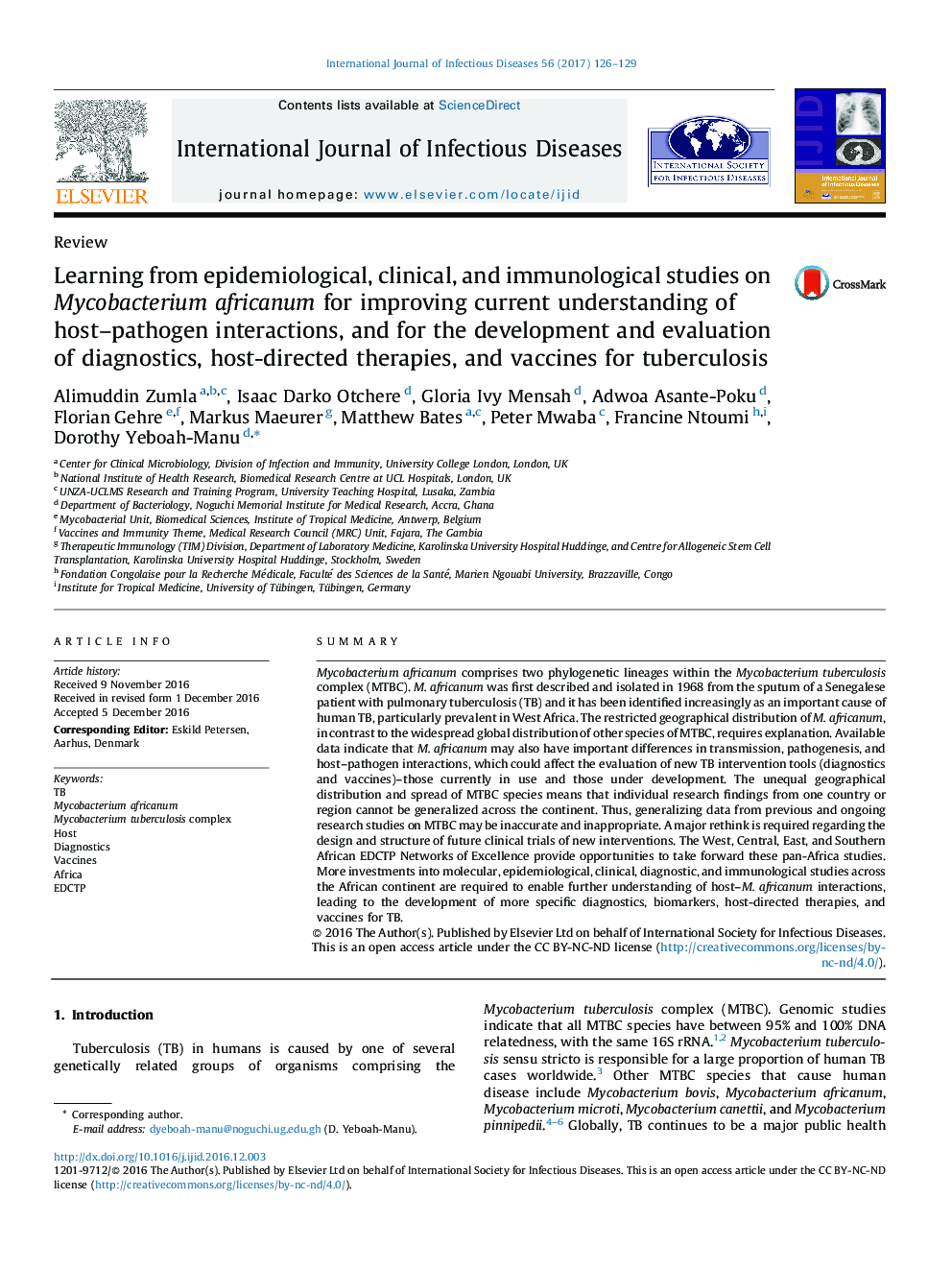| کد مقاله | کد نشریه | سال انتشار | مقاله انگلیسی | نسخه تمام متن |
|---|---|---|---|---|
| 5667573 | 1592037 | 2017 | 4 صفحه PDF | دانلود رایگان |

- Mycobacterium africanum (Maf) comprises two phylogenetic lineages within MTBC.
- Maf is geographically restricted to West Africa for unknown reasons
- The genotypic and phenotypic differences among the MTBC can negatively impact control strategies.
- Maf infection of humans enables understanding of host-pathogen interactions.
- Africa needs more resources for Maf research to support control strategies.
SummaryMycobacterium africanum comprises two phylogenetic lineages within the Mycobacterium tuberculosis complex (MTBC). M. africanum was first described and isolated in 1968 from the sputum of a Senegalese patient with pulmonary tuberculosis (TB) and it has been identified increasingly as an important cause of human TB, particularly prevalent in West Africa. The restricted geographical distribution of M. africanum, in contrast to the widespread global distribution of other species of MTBC, requires explanation. Available data indicate that M. africanum may also have important differences in transmission, pathogenesis, and host-pathogen interactions, which could affect the evaluation of new TB intervention tools (diagnostics and vaccines)-those currently in use and those under development. The unequal geographical distribution and spread of MTBC species means that individual research findings from one country or region cannot be generalized across the continent. Thus, generalizing data from previous and ongoing research studies on MTBC may be inaccurate and inappropriate. A major rethink is required regarding the design and structure of future clinical trials of new interventions. The West, Central, East, and Southern African EDCTP Networks of Excellence provide opportunities to take forward these pan-Africa studies. More investments into molecular, epidemiological, clinical, diagnostic, and immunological studies across the African continent are required to enable further understanding of host-M. africanum interactions, leading to the development of more specific diagnostics, biomarkers, host-directed therapies, and vaccines for TB.
Journal: International Journal of Infectious Diseases - Volume 56, March 2017, Pages 126-129